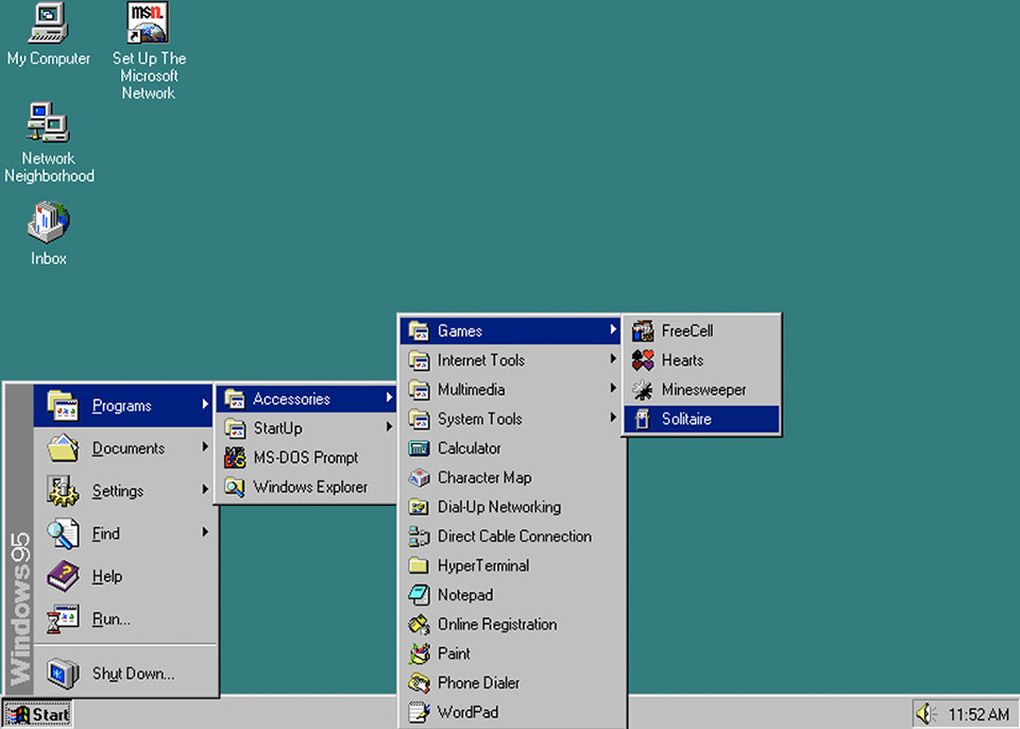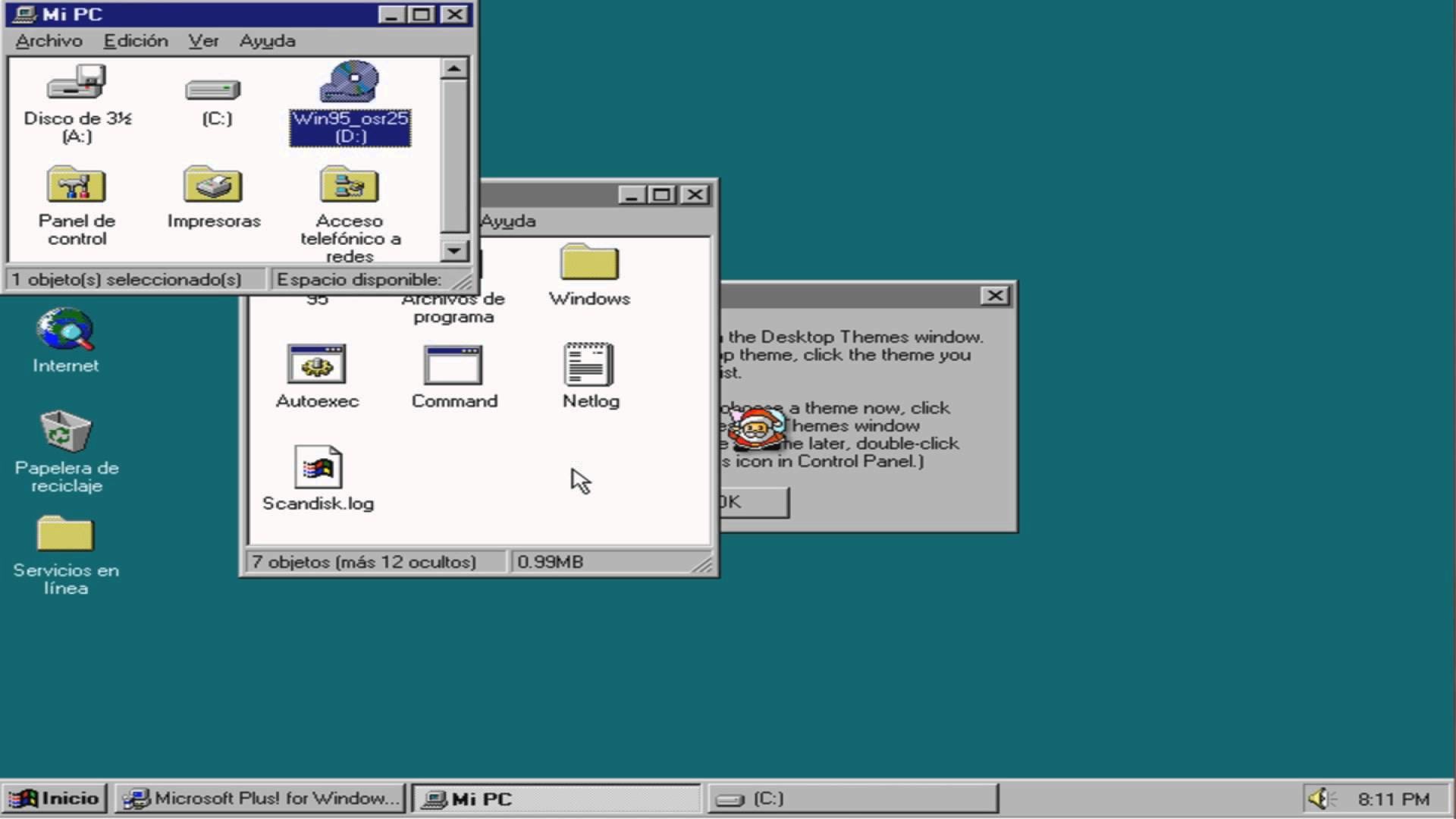

- #Windows 95 desktops install#
- #Windows 95 desktops serial#
- #Windows 95 desktops software#
- #Windows 95 desktops Pc#
Many desktop PCs from that era used IDE or EIDE hard disks. The connections and architecture associated with hardware in a vintage Windows 95 are different from modern computers for the desktop. What should you look for when purchasing additional components? Windows may not be able to access drives over 32 GB in size. Microsoft recommends 200 MB, depending on the options selected.
#Windows 95 desktops software#
However, compatibility mode does not always work correctly for software designed for older versions of Windows. Microsoft later included compatibility mode in current versions of Windows developed for the desktop. Some computer programs can only run using Windows 95 software.

Older Windows-based desktop computers may be considered collectibles.There are several reasons why it would make sense to purchase a Windows 95 desktop or all-in-one (AIO) desktop in current times. What sets Windows 95 desktops or all-in-ones apart? With this version of Windows, Microsoft introduced desktop computer users to the "Start" button and to point and click with a mouse this program also introduced many other features that are still considered core parts of the modern operating system (OS). Instead of using the "Command" line, Microsoft designed Windows 95 to run as a graphical user interface (GUI) on top of DOS or OS/2. Prior to the release of Windows 95, people interacted with their computers for the desktop primarily via the "Command" line and their knowledge of DOS commands.
#Windows 95 desktops Pc#
Consider emulators like x86Box or PCem instead.Windows 95 PC Desktops and All-in-One Computers Windows 95 has many issues on faster machines or VMs, requiring a number of patches in order to operate.
#Windows 95 desktops install#
If you use those, you may need to disable various acceleration features first, and/or install the Windows 95 CPU speed fixes. VMWare and VirtualBox are problematic with Windows 95.
#Windows 95 desktops serial#
You may also override the install type (no serial needed) by creating a file name MSBATCH.INF with the lines "", and then "ProductType=1", placing that in the Win95 setup folder, and then running setup. If the listed serials below do not work for a specific release, please see the Serials thread If a download does not include a boot floppy, please see Microsoft Windows Boot Disks The 95 architecture was continued with Windows 98.

It could even still make use of DOS drivers. It still ran on top of DOS, but bundled its own special "Windows 95" DOS (AKA MS-DOS 7). But Windows 95 was not a pure "32-bit" OS: It was still based around the framework of Windows 3.x, 2.x and 1.x. It no longer ran on a separate DOS product. It integrated the ability to run 32-bit applications similar to Windows NT or Windows 3.1 with Win32s. And it included the same networking abilities as Windows for Workgroups. It also included a new way of finding installed applications through a "Start" menu. Windows 95 offered, at long last, a well designed document-oriented desktop shell that worked much like the 1984 Macintosh Finder.


 0 kommentar(er)
0 kommentar(er)
